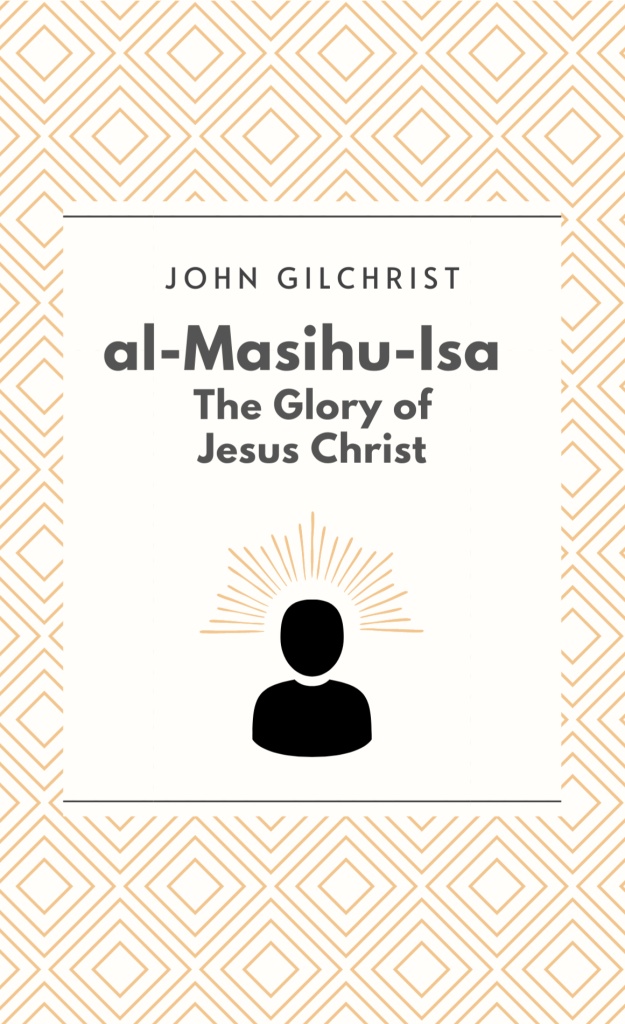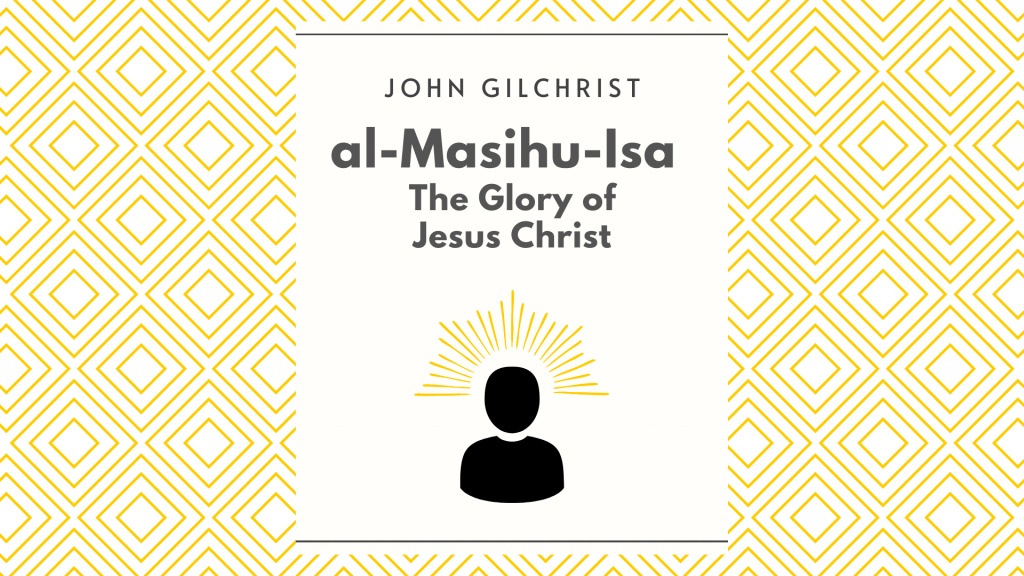Jesus of Nazareth: God's Anointed Messiah
Al-Masihu-Isa: The Glory of Jesus the Messiah


Chapters
« Ch. 4 - The Messianic Hopes of the Jews
We have already seen that the Qur'an openly acknowledges that Jesus was indeed al-Masih, "the Messiah", the long-awaited Deliverer whom God had promised. We have also seen how the Jews failed to recognise the Messiah when he came because they could not fully understand the prophecies of the former prophets regarding him and the purpose of his coming to earth (Acts 13:27). We now proceed to see whether Jesus regarded himself as the Messiah and whether his coming was announced.
The Qur'an openly acknowledges John the Baptist (Yahya) as a true prophet of God and confirms that he was announced to his father Zakariya (Surab 3.39). He is listed along with Jesus, Elijah (Ilyas), and a number other prophets as one of the righteous messengers of God to whom favour was given over the nations (Quran 6.84-86). As the Qur'an states that all the prophets were equal to one another and that no distinction is made between them, we would not expect to find John regarding Jesus as superior to himself. If they were both kinsmen of equal prophetic status, John would hardly have looked on Jesus as more worthy of honour and respect than himself or any other of the prophets who went before him.
Yet, when we read a contemporary record of John's life and ministry, we find that he looked toward the coming Messiah as one far superior to himself. As all people of that time were in expectation of the coming Saviour and "questioned in their hearts concerning John whether perhaps he were the Messiah" (Luke 3:15), John replied to them all:
"I baptize you with water; but he who is mightier than I is coming, the thong of whose sandals I am not worthy to untie; he will baptize you with the Holy Spirit and with fire." Luke 3:16
John clearly regarded the coming Messiah as far superior to himself, even though he was a true prophet of God, so superior in fact that he boldly proclaimed that he was not even worthy to bow at his feet and untie his shoelaces. On another occasion he said:
"You yourselves bear me witness, that I said, I am not the Messiah but I have been sent before him ... He must increase, but I must decrease." John 3:28, 30
He clearly regarded the Messiah as far mightier than himself and on yet another occasion he gave way to him, saying of Jesus as he saw him coming towards him:
"This is he of whom I said, 'After me comes a man who ranks before me, for he was before me'." John 1:30
These statements were all consistent with those of the former prophets who had predicted the glory of the coming Messiah whom John openly identified as Jesus. John too spoke of the pre-existence of the Messiah as Micah and others had done before him and, being the only prophet to rise at the same time as Jesus, rejoiced at the honour of being appointed to reveal him to the nation (John 1:31). He was indeed sent from God, but only as a prophet to bear witness to the true light who was coming into the world just as the former prophets had done. "He was not the light, but came to bear witness to the light" (John 1:8).
Some months later a Samaritan woman came to the well of Jacob at Sychar and saw Jesus sitting next to it. A brief discussion followed and, when she saw that he could see right through her and could read the background of her life, she said, "Sir, I perceive that you are a prophet" (John 4:19). Yet, as he continued to discuss with her and now began to speak of a new age that was about to be brought in where opportunities would arise for all men in all nations to have a living knowledge of the truth of God in their hearts and thus worship him fully in spirit and in truth, she sensed that he was far more than a prophet and said to him:
"I know that Messiah is coming (he who is called Christ); when he comes, he will show us all things." John 4:25
To this Jesus openly replied, "I who speak to you am he" (John 4:26). Her question was an indirect way of prompting Jesus to disclose himself - was he just another prophet or was he possibly God's Supremely Anointed One, the heavenly ruler of ancient days who would bring the full and final revelation of God to man? Jesus gave her an emphatic answer - I am he. On another occasion, when the Jews said to him, "How long will you keep us suspense? If you are the Messiah, tell us plainly" (John 10:24), Jesus again answered quite openly "I told you and you do not believe" (John 10:25). He had no doubt whatsoever that he was the Messiah, the man of glory foretold in the prophecies of the prophets who came before him. Indeed, when the high priest of Israel himself directly asked him "Are you the Messiah...?" (Mark 15:61), he answered equally directly, "I am" (Mark 15:62).
Jesus of Nazareth, the lowly man from a village in Galilee, was indeed God's Messiah, his Anointed One whom he had promised to send into the world as its Saviour and Deliverer. Both the Bible and the Qur'an openly declare Jesus to be the Messiah and it is therefore incumbent on every Christian and Muslim to acknowledge him as such. Much time has been spent showing that the Messiah was to be far greater than any of the prophets of God.
The time has now come to analyse who he really was and what he was sent to accomplish as God's Anointed One and chosen Saviour on earth.